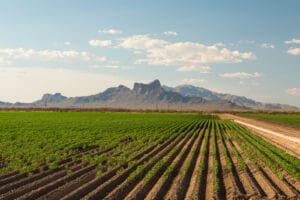Habitat for Humanity in Central Arizona (HFHCAZ) has one very strong mission. And that is to build simple, affordable and decent places to live, in partnership with low-income families in need. The word “affordable” is key not only in the cost to build but also the cost to live in and maintain. Sustainable ‘green’ building practices complement this mission. By improving the energy and water efficiency, as well as the durability and indoor air quality of Habitat homes, “affordability” and “sustainability” become ideal counterparts. HFHCAZ recognized the value of this relationship and began implementing ‘green’ building practices into its model over a decade ago by building Energy Star homes. In the Fall of 2008, HFHCAZ became the first affiliate in the country to build an affordable home at the LEED Platinum level.
An upcoming HFHCAZ home build has been selected as one of the Legacy Projects for the 2009 Greenbuild International Conference & Expo. Habitat will soon build a Net Zero Energy Affordable home during the five days of the conference, November 9 – 13, 2009, and will pursue LEED Platinum Certification. The 1,325-square-foot, three-bedroom home will be built in the City of Phoenix Enterprise Community on 20 N. 27th Drive. This project will serve as national model, demonstrating that the LEED for Homes Rating System is successfully being used for affordable housing.
Energy modeling software testing has reported that, on a yearly average, the home will produce more energy than it consumes. This is achieved through a wide range of design considerations when building including: the insulation and air tightness of the exterior walls and attic, the efficiency of the equipment installed, and the use of solar power. The long-term benefits of this Net Zero Energy, Green Habitat home are lower energy bills, lower water bills, better indoor air quality, less homeowner maintenance and a smaller ecological footprint.
The qualified Habitat family for this home is a single mom and two teenage children. She will contribute a minimum of 400 sweat equity hours working side by side with volunteers to build the home as well as pay a zero percent mortgage to HFHCAZ. The family will also participate in financial education classes and homeowner education classes to provide information on ways to optimize the use of the green features in the home.



